Optics Collection
Welcome to the optics collection at Aberystwyth University Physics Museum. Here you will find a fantastic selection of historical optics equipment previously used to examine the properties of light.
This collection is split into five sections:
- Microscopes
- Photographs and Projectors
- Polariscopes and Polarimeters
- Spectroscopes and Spectrometers
- Telescopes and Refractometers
MICROSCOPES
Binocular Microscope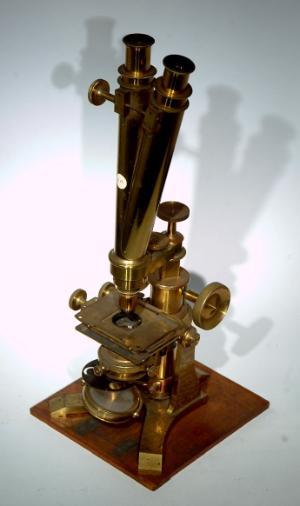
Circa 1870
In case with many different attachments, this is a very fine instrument.
Presented by Miss Gwen Davies in memory of her father Mr. Ben Davies, 1966.
Drum Microscope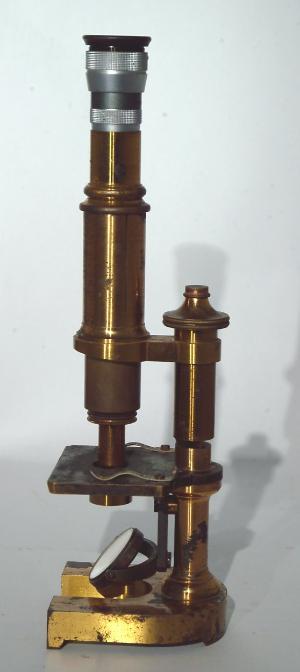
By E. Leitz Wetzla
Complete in case with 7 objectives, 1 eyepiece, 2 hand lenses, 6 ivory slides, specimen tube and ivory plaque.
Presented to St. David’s College, Lampeter in 1844 by D. Rowland M.D., F. A. S. Purchased by U. C. W. 1945.
Spencer Microscope No. 51765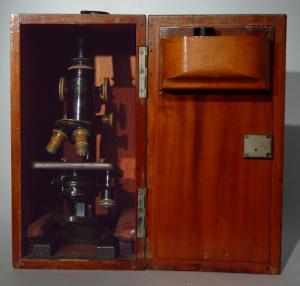
By Spencer, Buffalo, USA.
This iron microscope was produced before 1945 and includes case and two lenses.
Microscope Slides
Purchased by Ben Davies, 1966
A selection of microscope slides containing vegetable tissue, photographs, insect samples, acids, chemicals, plant life and various other curiosities.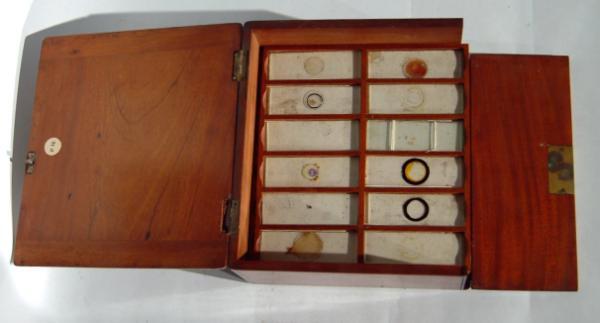
PHOTOGRAPHS AND PROJECTORS
Lumiere Colour Photographs
From 1910
A collection of four photo negatives, one of which shows the original U. C. W. Physics lab, with several pieces of apparatus now in this museum. One of a basket of fruit. One of a vase of flowers and one spoilt.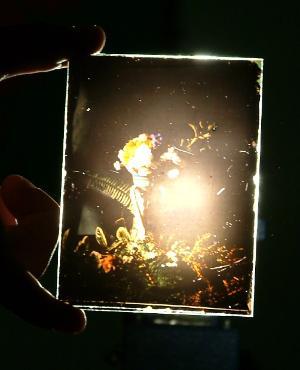
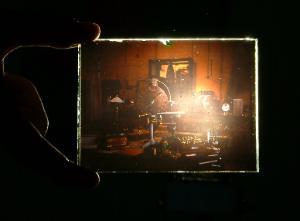
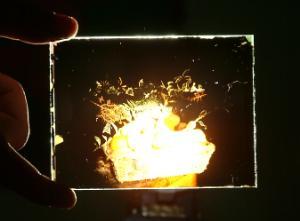
35mm Cine-Projector
Trademark J.W. 1904
This projector is complete with case, arc and limelight, re-winder, splicer, reels and several celluloid films. “The Perils of the Parlour”, “The Daddy of Them All” and “Railway”.
Formerly the property of Prof. H. P. Lewis (geology) whose father would give film shows with it.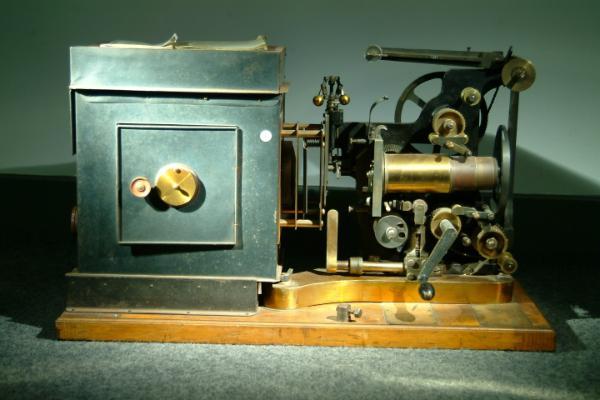
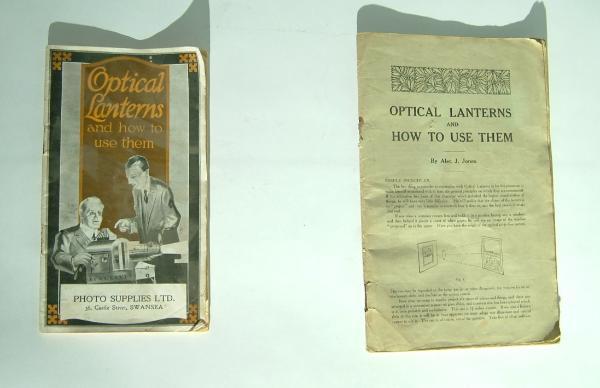
Leech Series 1 3” Cine Projector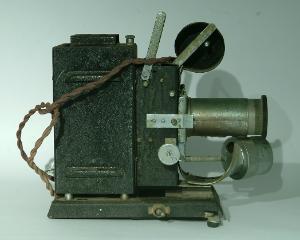
By Leech.
A compact projector for the playing of movies.
Magic Lantern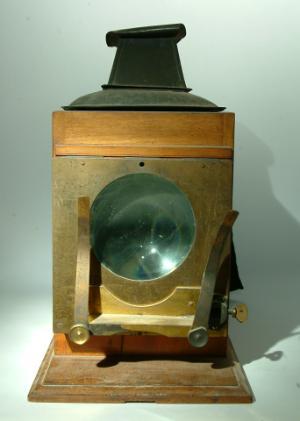
By Newton and Co. 1905.
Magic lanterns were early projectors that used bright bulbs to project images from glass plates. Typically used for education.
Pioneer Venus Slides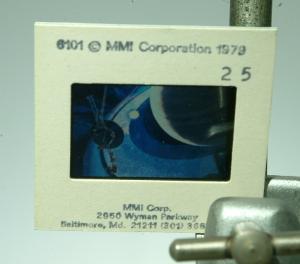
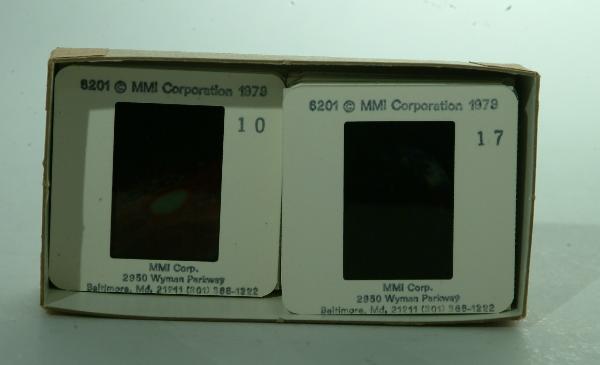
By MMI Corporation. 1979.
A collection of photographic slides showing images from the Pioneer Venus project.
Pioneer Saturn Slides
By MMI Corporation. 1979.
A collection of photographic slides showing images of Saturn and its moons taken by the Pioneer 11 space probe.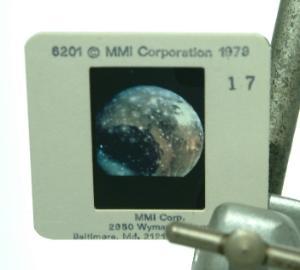
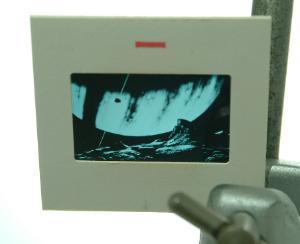
Voyager 1 Jupiter Slides
By MMI Corporation. 1979.
A collection of photographic slides showing Voyager 1 images of Jupiter and its moons.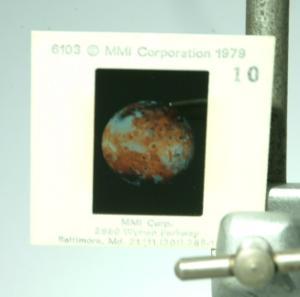
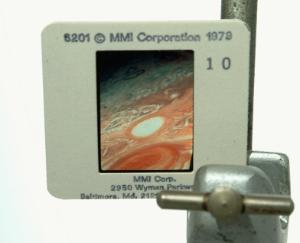
Voyager 1 Saturn Slides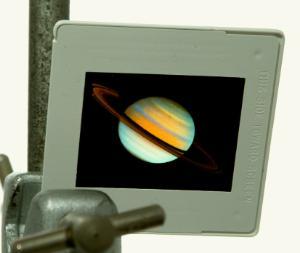
By MMI Corporation. 1979.
A collection of photographic slides showing Voyager 1 images of Saturn and its moons.
Voyager 2 Jupiter Slides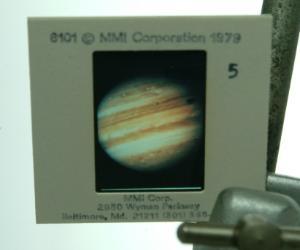
By MMI Corporation. 1979.
A collection of photographic slides showing Voyager 2 images of Jupiter and its moons.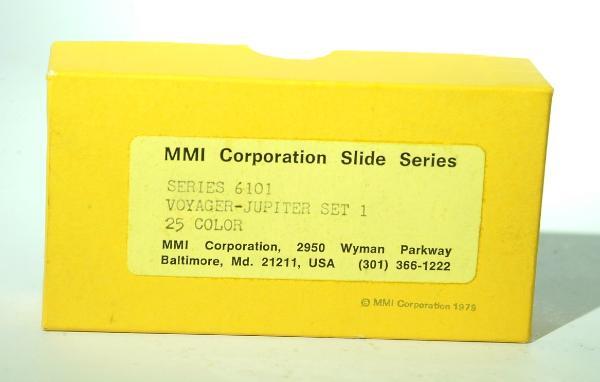
Planets Slides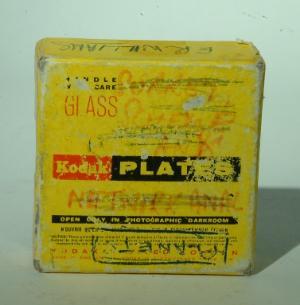
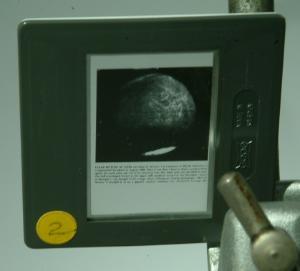
By GEPE.
A collection of photographic slides detailing information about several planets and their features.
POLARISCOPES AND POLARIMETERS
Norremberg Polariscope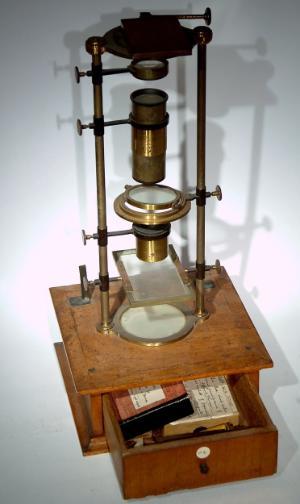
Circa 1890
This apparatus was used to demonstrate light polarization and comes with many mounted specimens.
Polarimeter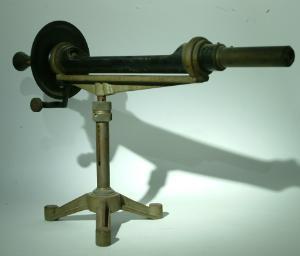
By Bellingham and Stanley, 1920
This piece of apparatus is used to measure the angle of rotation caused by polarized light that has passed through a substance. Bellingham was in charge of the U. C. W. Physics Workshop circa 1910.
SPECTROSCOPES AND SPECTROMETERS
Double-Prism Spectrometer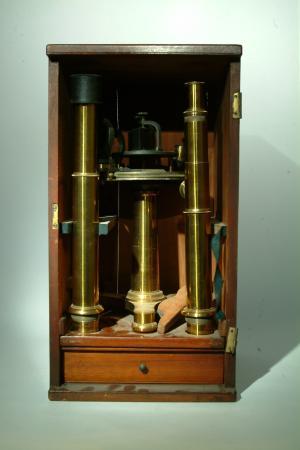
By John Browning, 1860
Used to analyse the different wavelengths of light. A light source is passed through the slit on the collimator where it is aligned. It then passes through the prism and is refracted twice leading to a spectrum of light. Presented by the Shirley Institute on March 21st, 1968.
Prism Spectroscope
This heavy spectroscope is unmarked, but was used in the Physics Lab for various optics and spectrometry experiments.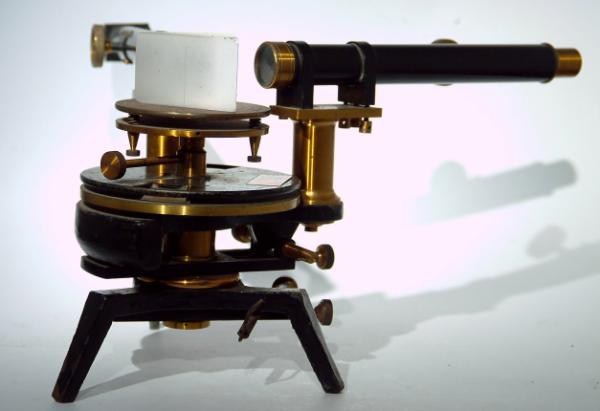
TELESCOPES AND REFRACTOMETERS
3” Refractor Telescope
By W. & S. Jones, London. 1850
Refractor telescope with 3 inch mirror and accessories, complete with equatorial mounting and wooden tripod.
Bequeathed to the University College of Wales by Sir John Williams, Physician to H. M Queen Victoria.
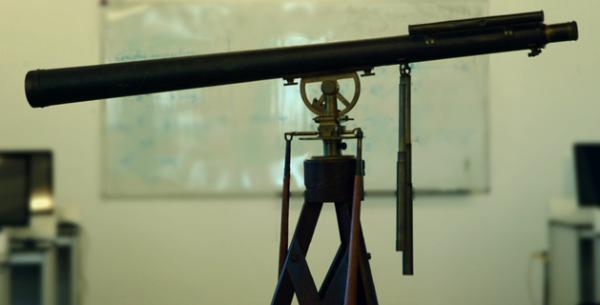
Gregorian Reflecting Telescope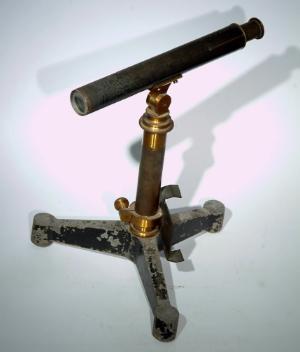
By R. W. Paul, London. 1765
This small reflecting telescope is mounted on a telescopic stand.
Abbe Refractometer No. 114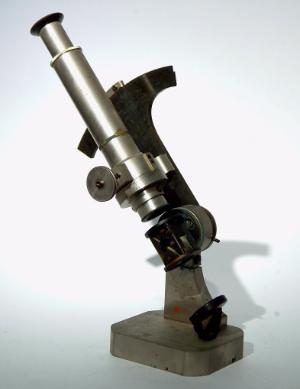
By Carl Zeiss, Jena, Germany, 1900
Invented by Ernst Abbe in the late 19th century, this is the first laboratory refractometer and is used to measure the refractive index of a liquid sample. The sample is placed in a thin layer between an illuminating and refracting prism. The sample must have a refractive index less than that of the prism glass. In case with original prism and clip.
Presented by the Shirley Institute on October 22nd, 1966.
